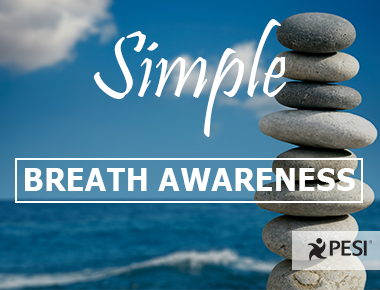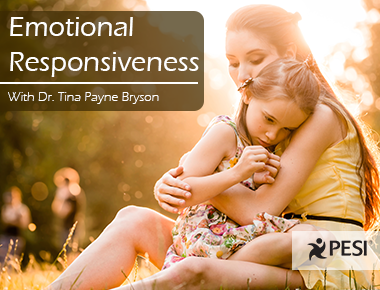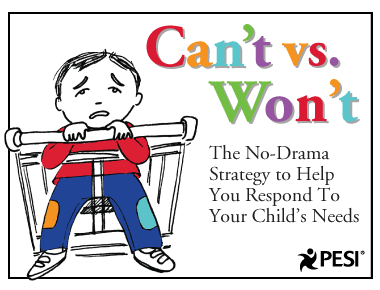Blogs and Free Resources
Here at PESI, our mission is to provide professionals like you with FREE practical and valuable tools, strategies,
and resources to assist with the great work you do. Find expert tips, helpful worksheets, demonstration videos, CE, news,
and more here. Happy learning!

Environmental Enrichment
A Multisensory Enrichment Protocol for Autism
Environmental Enrichment (EE) was designed as a low-cost program that has been shown to decrease autism symptoms and sensory issues and increase receptive language and cognitive skills at home. In this blog from Teresa Garland, MOT, OTR/L, you can download a free EE activity worksheet.

5 Postures to Help Deepen Your Breath
In this short video, psychotherapist, award-winning author and former Buddhist monk, Donald Altman, demonstrates 5 postures to help deepen your breath.

A Hidden Culprit of Poor Handwriting Posture
For most children, following proper writing posture is no problem. But what about Johnny, a bright child in your class who just can't follow your directions to sit up straight. Is it that Johnny just wants to look cool slouched in his chair, or is something bigger going on?

Simple Breath Awareness: An exercise to fight stress, anxiety and insomnia
You can use this simple breath awareness exercise from the classic text, “The Yoga Sutras of Patanjali," in a therapy session to help the client direct their attention to internal states and balance their autonomic nervous system.

Video: Emotional Responsiveness with Dr. Tina Payne Bryson
When you nurture your child's emotional world, you help build the connective fibers that make the reactive centers of their brains more readily and easily calmed down. Over time, these repeated emotional responsive interactions change your child's brain in a way that allows them to have better behavior and better emotional regulation. Learn more from Dr. Tina Payne Bryson...

Can’t vs. Wont: The No-Drama Strategy to Help You Respond to Your Child’s Needs
Free Worksheet: Distinguishing Can’t From Won’t
Making the distinction between can’t and won’t will help you respond to your child’s needs, and support him in moments when he is having difficulty managing his emotions and behaviors. Instead of reacting to disobedience, you can respond to your child in a way that builds connection and reduces the unwanted behavior.

Lion Breathing
Melt stress and tension from your face
For all the time we spend stretching our body, how often do we pause to stretch our face? With Lion Breathing you can quickly and easily relieve stress and tension by stretching your face.

Losing a Loved One to Porn (and What You Can Do About It)
It is perhaps unsurprising that the porn-related question we most often hear in our therapy practices relates to the amount of porn people use. Much of the time this question is posed by wives worried about their husband’s online endeavors. In short, these women want to know: How much porn is too much? And when does it cross the line from use to addiction?

The Opioid Epidemic: What can you do to help your clients?
No longer can we look the other way and assume that these deaths are confined to a certain type, class, race, or gender of person. Fifty-two people die from overdose every single day. This cause of death now outranks motor vehicle accident deaths.
Know what you can do to help your clients...
Know what you can do to help your clients...

MBSR-T Interventions: Pleasant Life Moments & Events Calendar
Learn how Gina Biegel uses Pleasant Life Moments in her work with teens
In this video, Gina Biegel, creator of Mindfulness-Based Stress Reduction for Teens (MBSR-T), shares her Pleasant Life Moments and Pleasant Events Calendar interventions. They are powerful teen-focused mindfulness practices that draw awareness to the many positive moments and activities in daily life.



